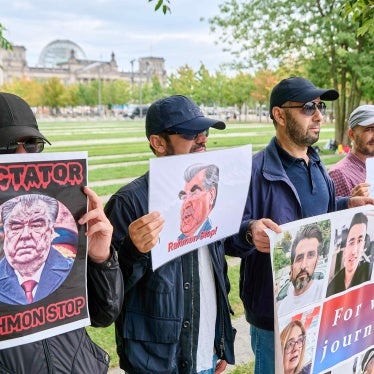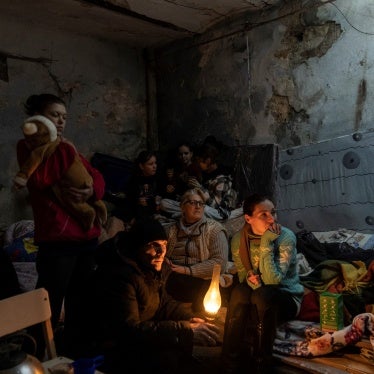As the crisis in Ukraine escalated this spring, the Kremlin’s vicious crackdown on civil society also escalated. Space for independent civic activity in Russia is shrinking dramatically, but international policymakers and the media have been understandably too distracted to do much about it.
Since early spring, it seems as though every week brings a new pernicious law or legislative proposal.
The authorities have blocked or essentially took editorial control over a number of independent news portals and are pushing new laws to stifle freedom of expression. Just a week ago, President Vladimir Putin signed a law requiring Russian bloggers with significant followings to register with the authorities and comply with the same regulations as media outlets without the same protections and privileges. The same law requires blogging services and social networks to store user activity for six months.
Another legislative proposal reportedly prompted by independent media coverage of the crisis in Ukraine would introduce administrative and criminal offenses for editors who publish “false anti-Russian” information or offer media support to “anti-Russian extremist and separatist forces.” Another new draft law introduces a ban on publishing negative information about the Russian government and military.
Also, amendments presently under review by the State Duma, the lower house of parliament, would enable the authorities to throw people behind bars for up to five years for repeated participation in unauthorized public protests.
At the same time as Russia is putting forward these new proposals, the infamous Russian law “on foreign agents” is part of the anti-Western hysteria here that is driving other aspects of the crackdown. The law, which Putin pushed through the parliament following his return to the presidency, and which theRussian Constitutional Court recently upheld, requires advocacy groups that accept foreign funding to register as “foreign agents.” This term, popular in Russia during the Cold War and beyond, demonizes these groups to the public as foreign spies and traitors.
Russian advocacy groups however, have put up a united front in resisting the government’s efforts to make them brand themselves foreign agents. Not a single rights group has registered. For about a year now, they’ve been fightingtough court battles trying to assert their independence.
After it became clear that independent groups would not yield to this pressure, the parliament introduced a new legislative proposal authorizing the Justice Ministry to register them as “foreign agents” at its own discretion, without the groups’ consent. The Justice Ministry appears to be resisting the idea. However, I sincerely doubt the Justice Ministry is seeking to assert itself as a champion of freedom of association. Most likely, it would rather avoid the responsibility, the extra work, and the inevitable courtroom confrontations with adamant groups since the draft law would allow groups to appeal the registration.
So, the Justice Ministry just proposed an alternative draft that would empower the prosecutor's office to suspend groups for up to six months without a court order for alleged failure to register as "foreign agents." Groups could in theory appeal the suspension, but in this version it’s the prosecutor’s office that would confront them in court.
Whoever loses this legislative dispute and gets tasked with these courtroom battles, it’s still Russia’s independent groups that will suffer another powerful blow. The key question is how many more blows these groups can withstand before crumbling under the heel of the Kremlin. Russia’s international partners should not allow the crisis in Ukraine to eclipse the zealous attempts by the Russian government to stifle all forms of independent criticism and activism on its home turf.








